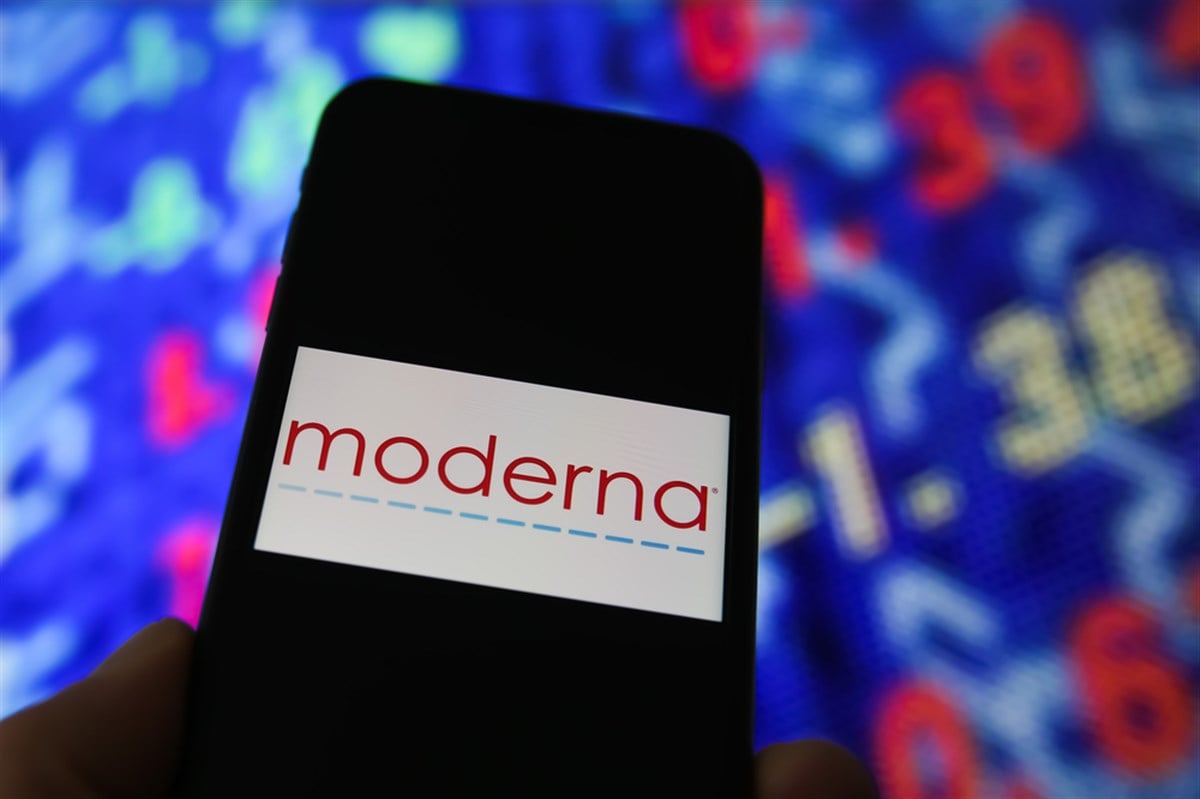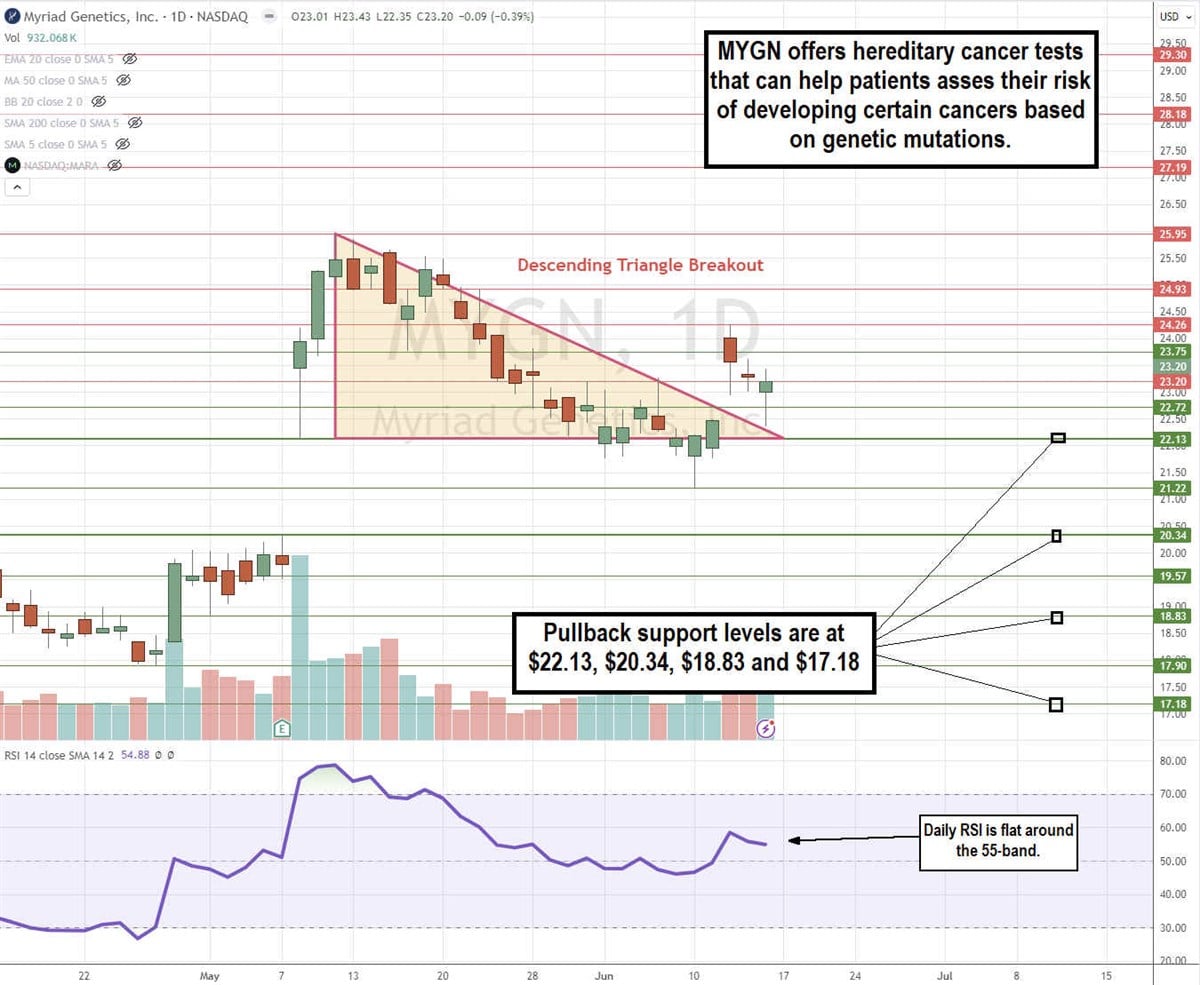
Biotechnology firm Moderna Inc. (NASDAQ: MNRA) made mainstream headlines during the pandemic for its COVID-19 vaccines. Moderna is focused on messenger RNA (mRNA) technology for the development of innovative treatments. The company continues expanding its treatments for various diseases and illnesses, including cardiovascular disease, cancer, and other rare diseases. Moderna has been working on personalized cancer vaccines that will enable a cancer patient's immune system to identify and terminate specific cancer cells.
Moderna operates in the medical sector and competes with other biotechnology companies such as Biogen Inc.(NASDAQ: BIIB), Pfizer Inc. (NYSE: PFE), and Amgen (NASDAQ: AMGN).
Simple Explanation of How an mRNA Vaccine Works
Vaccines are medical treatments that enable a person's immune system to fight disease. mRNA vaccines deliver instructions for the body to produce a harmless version of a virus (spike protein on the surface of SARS-CoV-2) to train the immune system to identify it and create antibodies against it for future encounters. This is an overly simplified explanation of how Moderna’s Spikevax COVID-19 vaccine works. The same mRNA technology methods are being applied to developing a cancer vaccine.
Personalized Cancer Treatment Using mRNA Technology
Cancer vaccine development has been underway for decades. The trend toward mRNA cancer vaccine continues to gain momentum. While mRNA is known for COVID-19 vaccines, they were originally intended to fight cancer. Rather than protecting the body from cancer, cancer vaccines train the immune system to target specific cancer cells. mRNA cancer vaccines are personalized, and creating a custom vaccine takes up to 14 weeks. Moderna’s mRNA-4157 neoantigen vaccine for melanoma was used with Merck & Co. (NYSE: MRK) Keytruda in a study that showed a 44% reduction of recurrence or death for melanoma patients.
Moderna’s Personalized mRNA Cancer Vaccine
Moderna’s mRNA cancer vaccines are custom-made by sequencing the DNA of each cancer patient's tumor and matching them up with 34 neoantigens to create a personalized treatment. The goal is to train the immune system to identify and target the destruction of those cancer cells specifically. Moderna is working on a melanoma treatment and is finishing construction of a facility in Marlborough, Massachusetts, for cancer treatments if approved. Its needle-to-needle time from biopsy to creation and injection of a personal mRNA cancer vaccine averages 75 days, which Moderna is trying to reduce to under 60 days. Moderna is also researching its application for head and neck cancers.

MRNA Stock is Forming a Descending Triangle Breakdown
The daily candlestick chart on MRNA illustrates a potential descending triangle breakdown pattern. The descending upper trendline resistance formed at the $170.47 peak as it capped bounces at sequentially lower highs. The flat-bottom lower trendline formed at $138.17. MRNA has been trending lower for 7 sessions as it tests the lower trendline support. The daily relative strength index (RSI) has also fallen from a peak at the lofty 87-band to the 45-band. Pullback support levels are at $131.72, $121.68, $116.73, and $107.00.
FDA Application Filed for JN.1 Targeting COVID-19 Vaccine
On June 7, 2024, Moderna filed an FDA application for the monovalent JN.1 composition COVID-19 vaccine for the 2024-2025 flu season. The company noted the most commonly solicited systemic adverse events include fatigue, headache, myalgia, and chills.
Moderna Reports Positive Phase 3 Trial Data for Combination Flu and COVID-19 Vaccine
On June 10, 2024, Moderna reported that its combination of influenza and COVID-19 treatment mRNA-1083 met its primary endpoints, triggering a higher immune response than the licensed comparator vaccines used in the trial. The trial consisted of around 4,000 adults split into 2 groups. One group, consisting of adults 65 and older, compared mRNA-1083 to co-administered Fluzone HD (flu vaccine) and Spikevax (COVID-19 vaccine).
The second group consisted of adults 50 to 64 years old and compared mRNA-1083 to co-administered Fluarix (stand flu vaccine) and Spikevax. Both cohorts exhibited a higher immune response for the mRNA-1083 vaccine for 3 strains of influenza (H1n1, H3N2, and B/Victoria) and the Omicron variant of SARS-CoV-2 virus over the combination flu and COVID-19 vaccines.
The Phase 3 clinical trial data for mRNA-1083 will be presented at an upcoming medical conference and submitted for publication as Moderna engages with regulators to discuss the next steps.
Moderna analyst ratings and price targets are at MarketBeat.














